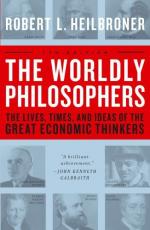
|
| Name: _________________________ | Period: ___________________ |
This test consists of 15 multiple choice questions and 5 short answer questions.
Multiple Choice Questions
1. Francis Ysidro Edgeworth was a graduate of what university?
(a) Oxford.
(b) Yale.
(c) The School of Economic Thought.
(d) Harvard.
2. The society that Marx believed would follow capitalism would be _________. (fill in the blank)
(a) Classless.
(b) Wealthy.
(c) Profitable.
(d) Well-planned.
3. Keynes felt the business cycles had to be countered by __________. (fill in the blank)
(a) Government intervention.
(b) Leaving the markets alone.
(c) Private investors.
(d) Higher wages.
4. Having spent some time in South Africa, Hobson returned to England and wrote what book?
(a) Progress.
(b) Capitalism.
(c) Capital.
(d) Imperialism.
5. Where did Karl Marx and Friedrich Engels meet?
(a) London.
(b) Paris.
(c) Berlin.
(d) Brussels.
6. The time period Veblen analyzes is referred to as __________. (fill in the blank)
(a) The Great Depression.
(b) The Roaring Twenties.
(c) The Victorian Period.
(d) The Golden Age of America.
7. The period that followed the stock market crash is referred to as __________. (fill in the blank)
(a) The Golden Age.
(b) The Great Recession.
(c) The Great Depression.
(d) The Fall of Mankind.
8. What nationality was Veblen's family?
(a) Swedish.
(b) Dutch.
(c) Norwegian.
(d) British.
9. In what year is Schumpeter's book Capitalism, Socialism and Democracy published?
(a) 1944.
(b) 1932.
(c) 1954.
(d) 1942.
10. Keynes was involved in what important conference after World War II?
(a) Conference at Vienna.
(b) Peace Conference.
(c) Bretton Woods.
(d) United Nations.
11. From where did Veblen graduate with a Ph.D?
(a) Harvard.
(b) Cornell.
(c) University of Chicago.
(d) Yale.
12. When were Schumpeter's theories considered true?
(a) Only in theory.
(b) Only in Europe.
(c) In the short-run.
(d) In the long-run.
13. Where was Joseph Schumpeter born?
(a) America.
(b) England.
(c) Austria.
(d) Australia.
14. Where was Veblen raised on a farm?
(a) Sweden.
(b) Illinois.
(c) Norway.
(d) Minnesota.
15. During the Victorian period, economics became the province of __________. (fill in the blank)
(a) Politicians.
(b) Lawyers.
(c) Professors.
(d) Landowners.
Short Answer Questions
1. What is Marx's theory of valuation is called?
2. Schumpeter's book makes a distinction between ___________ successes and sociological successes. (fill in the blank)
3. What was the name of the publication of Engels' impressions after working for his father's textile business in England?
4. Who sent a letter to his business associates threatening to ruin them?
5. According to Schumpeter, a(n) __________ of some sort results in a flow of income that does not come from labor or other resource owners.
|
This section contains 379 words (approx. 2 pages at 300 words per page) |

|




